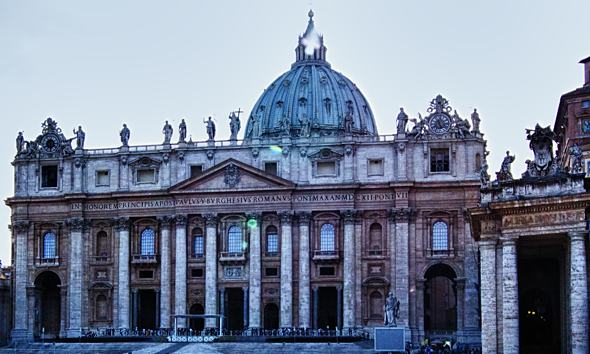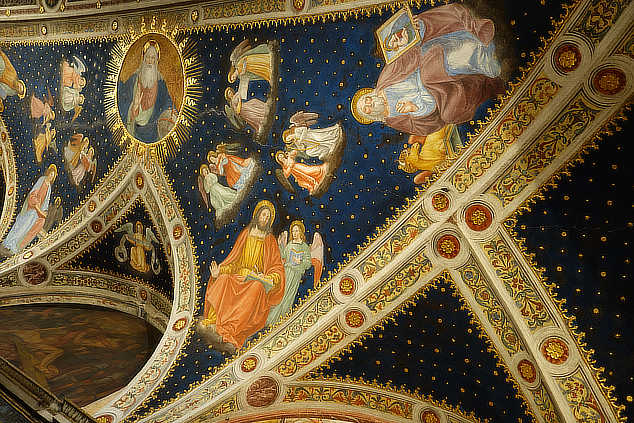Mafia movies have long captivated audiences with their portrayal of the complex relationship between Italian cinema and crime. The origins of these movies can be traced back to the early depictions of organized crime in Italian cinema. Influenced by real-life criminals, these movies began to explore the intricacies of the mafia world.
The rise of the mafia genre was greatly influenced by American gangster films, which introduced new elements and narratives. Throughout the 20th century, key Italian mafia movies emerged, leaving a lasting impact on the industry.
The relationship between and crime is multifaceted. Mafia movies often depict the mafia as anti-heroes, blurring the lines between right and wrong. They also serve as a reflection of Italian society and culture, exploring themes of honor, family, and power. Furthermore, these movies delve into the criminal mind, providing insights into the motivations and psychology of characters involved in organized crime.
The impact of mafia movies extends beyond the silver screen. They shape public perception of organized crime, sparking political and social controversies in Italian society. These movies have gained global popularity and developed a cult following, influencing international filmmakers and inspiring the creation of similar narratives in different cultural contexts.
In this article, we will delve into the fascinating world of mafia movies, exploring their origins, their complex relationship with and crime, their impact on Italian society, and their international influence.
The Origins of Mafia Movies
Unveiling the birth of a cinematic phenomenon: Mafia Movies. Explore the intriguing realm where Italian cinema intertwines with the dark underbelly of organized crime. Witness the evolution of this captivating genre as we dive into the early portrayals of organized crime in Italian cinema and the profound influence of real-life criminals on Mafia Movies. Brace yourself for a thrilling journey through time, where reality and fiction collide in a mesmerizing clash of power, honor, and betrayal. Prepare to be immersed in a world where the line between hero and villain becomes blurred.
The Early Depictions of Organized Crime in Italian Cinema
Italian cinema has a long history of depicting organized crime, especially in the early depictions of the dark underbelly of society. These early portrayals, such as Damiano Damiani’s films, delved into the treacherous terrain of power and betrayal within the Mafia. They skillfully highlighted the psychological dynamics at play and provided valuable insights into Italian society and cultural dynamics. Through intricate narratives and captivating characterizations, filmmakers like Leonardo Sciascia and Elio Petri offered thought-provoking social commentary and examined the morally conflicted anti-hero protagonists. These initial representations laid the foundation for the subsequent development of Italian mafia movies, showcasing the intricate inner workings of the mafia with artistic finesse.
Fact: The early depictions of organized crime in Italian cinema not only established the stage for the rise of the mafia genre but also left a significant impact on filmmakers both domestically and internationally.
Influence of Real-Life Criminals on Mafia Movies
Real-life criminals have had a monumental influence on mafia movies throughout history. The narratives, actions, and behaviors of these individuals have served as a profound inspiration for filmmakers in crafting genuine stories. The intricate dynamics and power struggles within criminal organizations have been effectively depicted through cunning dons and morally conflicted anti-hero protagonists. Additionally, Italian historical crime novels and true crime stories have supplied a bountiful source of material for filmmakers. The influence of real-life criminals grants an extra layer of authenticity and rawness to mafia movies, enriching the audience’s comprehension of the complexities and mercilessness of organized crime.
The Rise of the Mafia Genre
In the world of cinema, the rise of the mafia genre has captivated audiences for decades. From the influence of American gangster films to the key Italian mafia movies of the 20th century, this section takes us on a journey through the complex relationship between Italian cinema and crime. Get ready to delve into the echoes of history, the power struggles, and the allure of a world that both fascinates and repels us. Hold on tight as we explore the rise of the mafia genre and its enduring impact.
The Influence of American Gangster Films
Italian mafia movies have been greatly influenced by The Influence of American Gangster Films. This influence can be seen in the themes, storytelling techniques, and visual style of Italian mafia movies. American gangster films, such as “The Godfather” and “Goodfellas,” paved the way for the rise of the mafia genre in Italian cinema. These films showcased the ruthless brutality, intricate networks of power, and morally conflicted anti-hero protagonists that would become staples of Italian mafia movies. The influence of American gangster films on Italian cinema, The Influence of American Gangster Films, has helped create a unique blend of cinematic craftsmanship and social commentary that continues to captivate audiences worldwide.
Key Italian Mafia Movies of the 20th Century
Italian cinema has produced iconic mafia movies that have become cornerstones of the genre. Here are some key Italian mafia movies of the 20th century:
These films have not only entertained audiences worldwide but also shaped the mafia movie genre and influenced filmmakers globally. If you enjoy exploring the rich tapestry of Italian cinema and the intricacies of organized crime, these movies are definitely worth watching.
The Complex Relationship between Italian Cinema and Crime
Italian cinema has long captivated audiences with its mesmerizing portrayal of the intricate relationship between crime and the silver screen. In this section, we’ll explore the multifaceted dynamics that exist between Italian cinema and crime. From the depiction of the mafia as intriguing anti-heroes to the exploration of Italian society and culture, and the intricate portrayal of the criminal mind and their motivations, prepare yourself for a thrilling journey into the depths of this captivating cinematic realm.
Depiction of Mafia as Anti-Heroes
In Italian mafia movies, the depiction of the mafia as anti-heroes is often portrayed. They take on the role of complex and morally conflicted protagonists. These films explore the psychological dynamics and intricacies of the mafia’s inner workings, showcasing cunning dons and a kaleidoscope of personalities. Directors like Damiano Damiani and Elio Petri have crafted compelling characterizations that highlight the ruthless brutality and codes of conduct within organized crime. Through their artistic finesse, they offer social commentary on Italian society and the social and political changes that have influenced the mafia’s portrayal. These films draw inspiration from Italian historical crime novels by authors like Leonardo Sciascia and Marcello Fois, creating fictional representations that captivate audiences with their exploration of the treacherous terrain of power and betrayal.
Representation of Italian Society and Culture
Italian Mafia movies have provide a captivating window into the complexities of Italian society and culture. These films offer a reflection of the social and political changes that have shaped the nation. Through intricate storytelling and compelling characterizations, directors like Damiano Damiani and Elio Petri explore the treacherous terrain of power and betrayal, showcasing the morally conflicted anti-hero protagonists. With artistic finesse, these movies go beyond mere entertainment, serving as a social commentary on Italian society and culture. One true story in a similar vein is the rise and fall of Salvatore Riina, the ruthless Mafia boss whose actions revealed the dark intricacies of the Mafia’s inner workings and their impact on Italian society and culture.
Portrayal of the Criminal Mind and Motivations

Stop reading, start speaking
Stop translating in your head and start speaking Italian for real with the only audio course that prompt you to speak.
The portrayal of the criminal mind and motivations is a crucial aspect of Italian mafia movies. These films delve into the complex psychological dynamics of characters involved in organized crime. Directors like Damiano Damiani and Elio Petri explore the treacherous terrain of power and betrayal, showcasing morally conflicted anti-hero protagonists. By examining the intricacies of the mafia’s inner workings, these movies provide a profound social commentary on Italian society. One true story that captures the essence of these portrayals is the life of Tommaso Buscetta, a former Sicilian mafia boss turned informant. His motivations to break the code of silence and cooperate with authorities revealed the conflicts and internal dynamics within the criminal world.
In Italian mafia movies, the portrayal of the criminal mind and motivations plays a crucial role. These movies extensively explore the intricate psychological dynamics of individuals involved in organized crime. Renowned directors such as Damiano Damiani and Elio Petri navigate the treacherous world of power and betrayal, presenting morally conflicted anti-hero protagonists. By dissecting the inner workings of the mafia, these films offer a profound social commentary on Italian society. An exemplary real-life tale that encapsulates these depictions is Tommaso Buscetta’s journey, where a former Sicilian mafia boss turned informant showcases his motivations to break the code of silence and collaborate with authorities, unraveling the conflicts and internal dynamics within the criminal underworld.
The Impact of Mafia Movies on Italian Society
Italian cinema has had a profound influence on society, especially when it comes to portraying the complex world of organized crime. In this section, we’ll delve into the impact of Mafia movies on Italian society. We’ll explore how these films have shaped public perception of organized crime and sparked political and social controversies. Get ready to unravel the intriguing connections between Italian cinema and the dark underbelly of society. Prepare to be captivated by the fascinating insights that lie ahead.
Public Perception of Organized Crime
Public Perception of Organized Crime is greatly influenced by Italian mafia movies. These cinematic creations offer fictional portrayals of the complex and brutal nature of mafia activities, presenting a diverse range of morally conflicted protagonists who defy traditional hero roles. Through masterful artistic techniques and thought-provoking social commentary, renowned films such as “Romanzo Criminale – The Series” and “Gomorrah” bring into focus the intricate web of power dynamics and the treacherous landscape of trust and betrayal. The captivating characterizations presented in these movies notably shape the way the general public perceives organized crime, as they provide insight into the unforgiving demeanor, strategic cunning, and established codes of behavior within criminal organizations. It is undeniable that Italian cinema plays an influential role in molding society’s perception of organized crime.
Political and Social Controversies
Political and social controversies have long surrounded Italian mafia movies, making them a topic of discussion for years. Here are some key points to consider about these contentious films:
Throughout history, mafia movies have sparked intense dialogue and controversy, shedding light on the complex and often contentious relationship between Italian cinema, crime, and society. The significant societal impact and ongoing discussions surrounding these films demonstrate that their relevance extends far beyond mere entertainment.
The International Influence of Italian Mafia Movies
Italian mafia movies have left an indelible mark on the global film industry, captivating audiences worldwide with their riveting narratives and gritty portrayals of crime. In this section, we dive into the international influence of these iconic films, exploring their immense global popularity and devoted cult following. We also examine the profound impact they have had on international filmmakers, inspiring a new wave of crime dramas and shaping the cinematic landscape beyond Italy’s borders. Prepare to be captivated by the captivating allure of Italian mafia movies and their far-reaching impact.
Global Popularity and Cult Following
The global popularity and cult following of Italian mafia movies can be attributed to their compelling characterizations, cinematic craftsmanship, and social commentary. These films have captivated audiences worldwide with their portrayal of the labyrinthine networks of power, morally conflicted anti-hero protagonists, and ruthless brutality. They offer a kaleidoscope of personalities, exploring the intricacies of the mafia’s inner workings and the treacherous terrain of power and betrayal. As a result of their global popularity and cult following, Italian mafia movies have gained a significant influence over international filmmakers and have become an artistic medium to examine social and political changes. These films have also become an artistic medium to examine social and political changes, making them a significant part of contemporary cinema.
Suggestions for further reading/viewing:
| – “The Godfather” trilogy directed by Francis Ford Coppola |
| – “Gomorrah” directed by Matteo Garrone |
| – “The Leopard” directed by Luchino Visconti |
| – “Romanzo Criminale – The Series” based on the novel by Giancarlo De Cataldo |
| – “Inspector Montalbano” TV series based on the novels by Andrea Camilleri |
The Influence on International Filmmakers
The influence of Italian mafia movies on international filmmakers cannot be overstated. These films have served as a source of inspiration and influence for directors from all over the world, encouraging them to delve into the themes of organized crime and power dynamics in their own cinematic works. The artistic finesse, compelling characterizations, and social commentary found in Italian mafia movies have set a standard that many filmmakers aim to match in terms of intrigue and authenticity. Whether in Hollywood or independent cinema, the impact on international filmmakers is evident in the development of their own narratives and characters that navigate the treacherous world of power and betrayal, akin to the Italian mafia movies that preceded them.
Frequently Asked Questions
What are some key features of Italian mafia movies?
Italian mafia movies, also known as “Mafia cinema,” are highly acclaimed for their portrayal of Italy’s organized crime world. These films explore the inner workings of the mafia, including its power dynamics, codes of conduct, and brutal operations. Italian mafia movies feature complex and compelling characters, from conflicted anti-heroes to cunning dons. The performances in these films are intense and emotionally deep, bringing authenticity to the characters. The visual aesthetics of Italian mafia movies showcase the artistry of the filmmakers, with evocative lighting, striking compositions, and symbolic imagery.
Which are some highly acclaimed Italian mafia movies?
“The Godfather” is a 1972 American crime film directed by Francis Ford Coppola, based on Mario Puzo’s novel. It is considered one of the greatest films ever made and stars Marlon Brando and Al Pacino. “The Godfather” explores power, loyalty, family, and traditional themes and is known for its iconic scenes and lines. The film was a critical and commercial success, winning three Academy Awards and inspiring two sequels.
“Goodfellas” is a 1990 American crime film directed by Martin Scorsese, based on the true story of Henry Hill. The film follows Hill’s rise in the Lucchese crime family and his involvement in criminal activities. “Goodfellas” stars Ray Liotta, Robert De Niro, and Joe Pesci and is known for its realistic portrayal of the mafia. The film received critical acclaim and has become a classic in the genre.
What books analyze the relationship between Italian crime fiction and cinema?
The book “Investigating Italy’s Past through Historical Crime Fiction, Films, and TV Series Murder in the Age of Chaos” by Barbara Pezzotti is an online ebook that extensively analyzes the ways in which Italian historical crime novels, TV series, and films have been used to address social and political changes in Italy. The study focuses on various writers, including Leonardo Sciascia, Andrea Camilleri, Carlo Lucarelli, Francesco Guccini, Loriano Macchiavelli, Marcello Fois, Maurizio De Giovanni, and Giancarlo De Cataldo. It also examines the works of film directors such as Elio Petri, Pietro Germi, Michele Placido, and Damiano Damiani.
Which TV series are explored in the book “Investigating Italy’s Past through Historical Crime Fiction, Films, and TV Series Murder in the Age of Chaos”?
The book explores TV series like the “Commissario De Luca” series, the “Commissario Nardone” series, and “Romanzo criminale–The series.”
What is the significance of historical crime fiction, films, and TV series in understanding the social and political changes in Italy?
The author argues that these fictional representations of the past reflect the anxieties and concerns of Italian society during the time of their creation. They serve as a means to intervene in the social and political landscape of Italy. By examining these cultural products, the author aims to shed light on the historical context and the impact they have on Italian society.
Which filmmakers are mentioned in the book “Investigating Italy’s Past through Historical Crime Fiction, Films, and TV Series Murder in the Age of Chaos”?
The book examines the works of film directors such as Elio Petri, Pietro Germi, Michele Placido, and Damiano Damiani.




